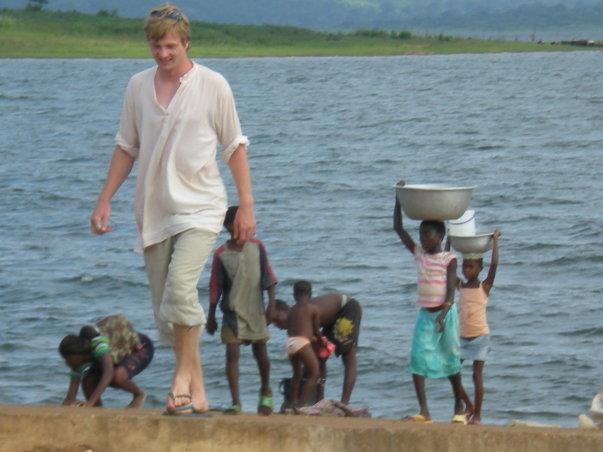The BBC has a story today on the lack of clean water in Ghana.
A large part of the population in Ghana still doesn’t have access to clean water. Some of the poorest Ghanaians pay a quarter of their income on purchasing it from private sellers.
If you have spent any time in Ghana, you have undoubtedly seen locals carrying containers of water, even in the capital city Accra.
The BBC talks about Maamobi, 23-year-old Abiba and her sister, Wasila, who is only six. They walk three miles every morning to fetch a gallon and a half of water.
Ten years ago, when the idea of privatising Ghana’s water system was first proposed by the World Bank, local activists were alarmed. Fearing a profit-seeking company would raise the cost of water for ordinary Ghanaians, they formed the Campaign Against Water Privatisation.For five years a fierce public debate raged.
Then the World Bank and Ghana’s government adopted a compromise.
A private company, Aqua Vitens Rand Limited (AVRL), was given a contract to manage the existing system, while the responsibility for improving and expanding the infrastructure remained with the government.
Still, Alhassan Adam, from the Campaign Against Water Privatisation, says since then the situation has only got worse.”If you talk to any water consumer they will tell you the water crisis is getting worse and worse, especially in the big cities where Aqua Vitens Rand are managing the water system,” he says.”We are seeing the water system collapsing at a faster rate than when it was under public management.”
The population of Ghana’s cities is growing rapidly as people move from rural to urban areas in search of a living.
The World Bank estimates half a billion dollars would be needed to resolve water supply problems in Accra alone, with another half a billion at least for the rest of the country.
Time will tell if the water situation in Ghana improves.

